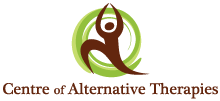The Case for Complementary Medicine
Complementary health care strategies continue to become increasingly recognized by Canadians due to the focus on selfcare in hopes of reducing the reliance on conventional medications. Evidence-based research is growing and continues to demonstrate through the practice of Integrative Medicine whereby alternative or complementary therapies are combined with conventional standard medical approaches to better achieve better patient outcomes. Complementary health care approaches are successful due to several factors.
1. The Holistic Approach:
We are more than the sum of our parts. Complementary approaches focus on treating the whole person—mind, body, and spirit—rather than just addressing symptoms in isolation. This holistic approach acknowledges the interconnectedness of various aspects of our well-being and emphasizes the importance of achieving balance for optimal health. We all recognize the detrimental effects of stress and how mood influences body chemistry and our own perception of well-being.
2. Personalized Care:
One size does not fit all. Complementary approaches often emphasize individualized treatment plans. Complementary practitioners take the time to understand a patient’s unique medical history, lifestyle, and preferences, leading to personalized strategies that can enhance overall well-being and potentially address underlying causes.
3. Prevention and Wellness:
Prevention is the best cure. Many complementary therapies emphasize preventive measures and wellness promotion. Techniques like acupuncture, yoga, and mindfulness can help strengthen the body’s natural defenses, reduce stress, and support immune function, thereby potentially reducing the risk of chronic diseases.
4. Minimal Side Effects:
Everything is toxic – it depends on the dose. Unlike some conventional medications that can carry significant side effects, many complementary therapies and associated medicines aim to minimize adverse effects. For example, herbal remedies may offer natural alternatives with fewer known side effects than certain pharmaceutical drugs.
5. Enhanced Quality of Life:
Quality is more important than quantity. Complementary medicines often focus on improving quality of life by attempting to manage the root cause by addressing symptoms, reducing pain, and promoting relaxation. Clients dealing with chronic pain, anxiety, or sleep disorders may find relief through practices such as meditation, massage therapy, or aromatherapy.
6. Cultural and Traditional Wisdom:
There is more than one version of reality. Many complementary therapies are rooted in ancient cultural and traditional practices that have been used successfully for generations. Incorporating these approaches can be a way to honor and integrate the wisdom of different cultures into modern healthcare.
7. Support for Chronic Conditions:
It is never too late. Complementary medicines can be especially valuable for chronic conditions that may not respond well to conventional treatments alone. Integrating techniques like acupuncture, chiropractic care, or dietary modifications can provide a multifaceted approach to managing ongoing health challenges.
8. Patient Empowerment:
You must take responsibility for your health. Complementary medicines often encourage active patient participation in their own healing process. This empowerment can lead to increased awareness of one’s body, lifestyle choices, and overall well-being.
9. Exploration of Novel Approaches:
Look at the sky and you will be reminded of the vastness of possibility. The world of complementary medicine is vast, encompassing a wide range of practices from traditional Chinese medicine to Ayurveda. Exploring these approaches can expand our understanding of health and foster innovation in healthcare.
10. Collaborative Approach:
Alone we can achieve little but together we can achieve anything. An integrative model that combines the strengths of both conventional and complementary medicine can offer a collaborative and synergistic approach to healthcare. Patients can benefit from the combined expertise of practitioners from different disciplines.
